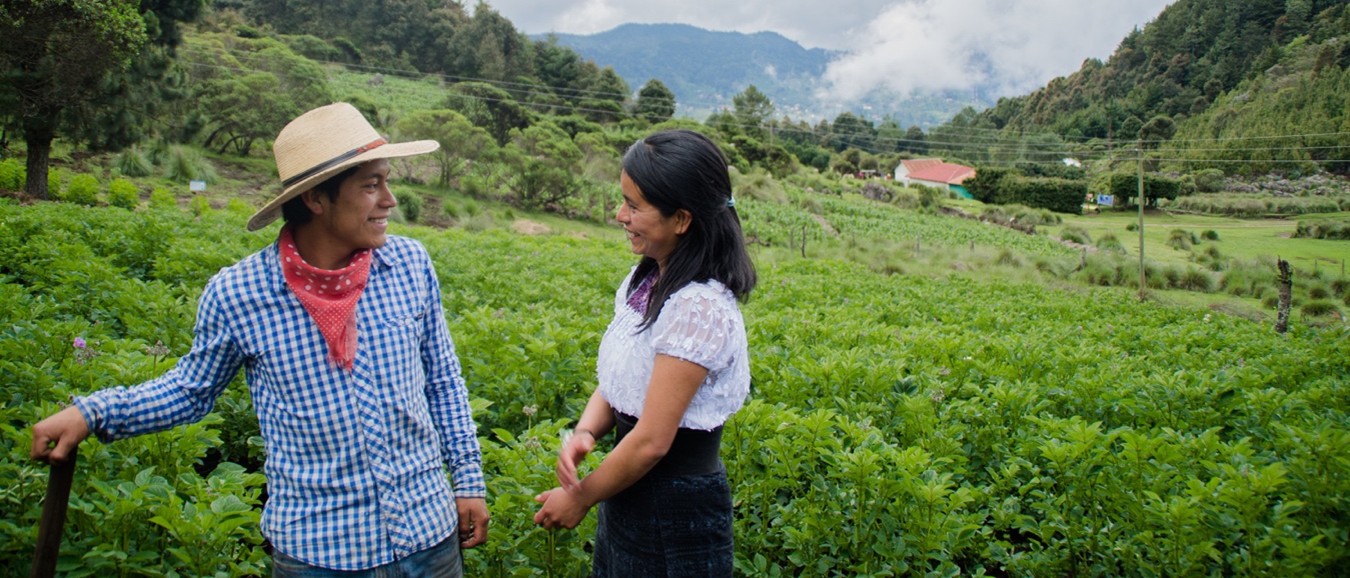FAO report highlights the crucial role of youth in transforming agrifood systems in Latin America and the Caribbean
Nearly four out of ten young people in the region work in agrifood systems, yet they face inequalities and vulnerable employment. A new FAO report analyzes the factors shaping young people’s participation in agrifood systems.

©FAO/Luis Sánchez
In Latin America and the Caribbean, 39% of young people work in agrifood systems, either directly in production or in activities linked to the food value chain, with figures ranging from 36% in South America to 42% in Central America. These findings are part of the new report by the Food and Agriculture Organization of the United Nations (FAO), The Status of Youth in Agrifood Systems, which examines the participation, challenges, and opportunities of the world’s more than 1.3 billion young people.
The study underscores that youth are essential actors in ensuring food security, environmental sustainability, and innovation within agrifood systems. However, they face structural barriers. In Latin America and the Caribbean, 51% of young men and 75% of young women have vulnerable jobs in agriculture.
The report also shows that youth, especially young women, are more likely to be in precarious, low-skilled, and poorly paid jobs. Rural young women are less likely than rural young men to study, work, or receive training and are less likely to work full-time, mainly due to their greater caregiving responsibilities. The report notes that closing this gap could have a significant economic impact: increasing global GDP by 1.4%, equivalent to USD 1.5 trillion.
It further warns that the effects of economic recessions and climate stressors have significantly different impacts on youth employment in agrifood systems, underscoring the urgent need to strengthen resilience, access to digital technologies, and adaptive capacity among young people.
During the launch of the global report in Latin America and the Caribbean, Benjamín Davis, Director of FAO’s Division of Inclusive Rural Transformation and Gender Equality, highlighted that the report “not only offers a comprehensive view of the situation of young women and men but also reflects how and under what conditions youth can act as catalysts for transforming agrifood systems.”
The launch brought together government representatives, youth organizations, and strategic partners to discuss the report’s implications for the region and to promote youth inclusion in the transformation of agrifood systems toward more sustainable, inclusive, and resilient models.
The report proposes three key action areas:
- Research more: Strengthen the empirical base and close knowledge gaps on youth and agrifood systems.
- Include more: Amplify the voices and participation of diverse youth in policymaking and decision-making processes.
- Invest more: Promote targeted investments to expand economic opportunities for young people and empower them.
At the regional level, FAO has identified and shared a range of tools, programs, and public policies aimed at strengthening youth inclusion, providing governments with practical inputs for developing more inclusive and sustainable policies. The Organization continues to promote enabling investments in rural areas to create conditions that foster youth development and their full integration into agrifood systems.
Contact
Inclusion Communication Strategy Coordinator
FAO Regional Office for Latin America and the Caribbean
